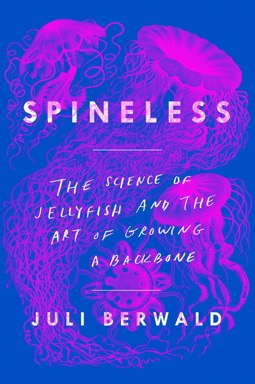Spineless
30/12/18 12:52
Juli Berwald, Spineless: The Science of Jellyfish and the Art of Growing a Backbone (New York: Riverhead Books), 2017

One of the tasks of scientists in this world with its rapidly changing global climate change and huge swings in populations of marine and land-based populations is the job of documenting just what is going on. Berwald is good at describing what has been observed in jellyfish populations and what that might mean for the health of the planet. Along the way she explores the sting of jellyfish and the different toxins with their treatments and descriptions of the pain that is inflicted. She teaches the reader not to draw premature conclusions. A large jellyfish bloom is not necessarily an indication of positive or negative factors in the environment. One has to look deeper to discern what it means.
Jellyfish are among the oldest creatures. The fossil record shows jellyfish very similar to contemporary species were existing during the time of the great dinosaurs. A creature that can survive so well through so many changes may have much to teach us about living in our world. She explore the so-called immortal jellyfish that has been observed reversing the normal cycle of age and returning to a younger, less mature state.
At first glance this book looks like it is for science geeks only. Reading it, however, reveals that it is a book for anyone who is interested in the world in which we live.